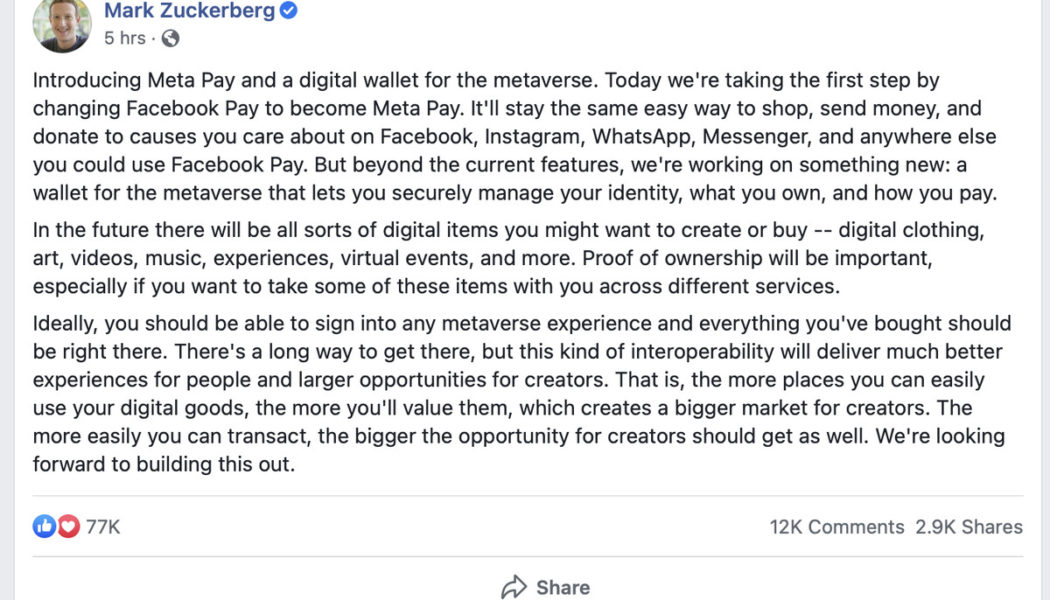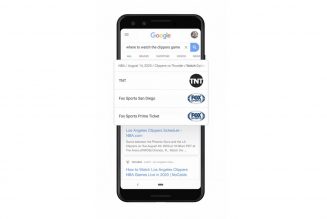Mark Zuckerberg announced on Wednesday that Facebook Pay has officially become Meta Pay, but his post is mainly focused on what the company hopes to build in the future — “a wallet for the metaverse.” While Meta Pay is essentially the same tool as it was before, just with Meta branding, Zuckerberg says the company is working on something that will let users manage their identities, items, and payment methods while making their way through the digital world that Meta bets will be the future.
The company has hinted at these plans before — its May announcement of the Meta Pay rebranded also mentioned that it was “scoping out what a single wallet experience might look like” with regards to making payments and storing your identity and digital items. Zuckerberg’s post, though, focuses mostly on how the company’s metaverse wallet will enable proof of digital ownership; he mentions how it could be used to create and buy “digital clothing, art, videos, music, experiences, virtual events, and more.”
:no_upscale()/cdn.vox-cdn.com/uploads/chorus_asset/file/23645116/Screen_Shot_2022_06_22_at_13.29.59.png)
The concept of a wallet that proves you own digital items sounds a lot like crypto wallets that hold NFTs. And while Zuckerberg’s post doesn’t mention the blockchain at all, the company has recently been working on integrating NFTs into Instagram and Facebook. Still, the company hasn’t really said whether it plans on actually building its metaverse using crypto or whether it’ll just take inspiration from it. (Given Meta’s history, the latter may be the best option; its attempt at making an actual cryptocurrency didn’t end well, and it’s reportedly looking into a digital currency that’s not based on the blockchain.)
Zuckerberg also says the plan is for Meta’s wallet to be interoperable, letting you bring your goods to “any metaverse experience.” While Zuckerberg has admitted that he’s not sure what interoperability will look like between companies, Meta recently helped form a standards group with the goal of getting everyone on the same page when it comes to language and tech related to the metaverse.
The wallet that Zuckerberg details is likely a ways off — especially if it’s meant to be interoperable based on standards that don’t exist yet. However, that hasn’t stopped the company from selling digital items in the meantime; it already has a store that sells clothes for your digital avatars.









